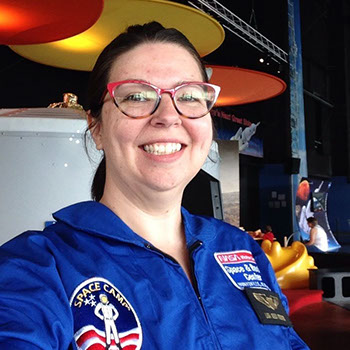Ms. Preston's Class
SCIENCE, MATH, and DISCOVERY
ASSIGNMENTS
RESOURCES
POLICIES
PARENTS
CONTACT
ROBOTICS
Ms. Preston's STEM Class
SCIENCE, MATH, and DISCOVERY
ASSIGNMENTS
"You have to learn the rules of the game. And then you have to play better than anyone else."
~ Albert Einstein
In order to make our classroom a comfortable and encouraging learning environment, we have a clear set of policies and expectations.
POLICIES
Class Rules and Procedures
Class Supplies (and wish list)
Necessary Supplies:
1" Binder, any color, with two inside pockets, 8-tab dividers is a bonus
ear buds or headphones
index cards
a supply of pencils every day
a supply of notebook paper
Optional Supplies
highlighter
scissors
colored pencils
pencil pouch (with your name on it!!!!) to carry supplies
big eraser
pocket pencil sharpener
small calculator
ruler
Classroom Wish List
We have no needs at this time!
Grading
Students will be provided the opportunity to show their growth over time. This growth will be documented in many ways including pre- and post-tests, a portfolio of work samples, and written reflection. Students will always have a chance to improve their scores, but will be responsible for demonstrating how they obtained their new understanding.
While You Were Out
If you have an excused absence, you have as many days as you were absent to make up the work. For example, if you were absent one day, you have one day turn in make up work.
Here’s how to get your make up work:
(1) When you return to class, please talk to your partners and classmates to see what you missed.
(2) Talk to your teacher to clear up any questions you may have.
(3) Jump in with your partners and make up for lost time!
Homework
As a general rule, I will not require homework. However, I do encourage students to use that time instead to reflect on one thing we learned about during the day and generate one question or statement about their learning to share at home or with me!
Mind Maps
Students are frequently asked to make “mind maps” from their class conversations and/or projects. This is a way for students to rework and review what they have just learned in class. To really learn and remember new material, the brain needs to work with it six times on average. Mind maps are a highly individualized way of reworking information because everyone thinks of unique ways of categorizing and rewriting their notes. Mind maps help the brain remember information because they help the learner rework the new material into a colorful picture format that the brain easily “sees”.
We have practiced mind maps in class and students have been shown good examples. An example of mind map for students to refer to has been put in their Skills tab of their notebook.
Instructions for making a mind map are:
(1) come up with your own categories in which to group and organize your class notes.
(2) rewrite ALL of your notes into the mindmap. ALL of your notes.
(3) Be sure you are including the details from your notes (e.g., defintions & examples)
(4) Use color
Mind maps should NOT take a lot of time to make. For homework, students add to them each day from their class notes. Sometimes, it will take a week before a mind map is complete. That final product should be excellent evidence that the student has really worked with the material.
In science, we will be learning a lot of new content at a fast pace. Students need the detailed practice mindmaps offer.
Here are some excellent examples that show the level of effort that is expected from my students:
RESOURCES
"Start where you are. Use what you have. Do what you can." ~ Arthur Ashe
Online Learning Resources
Below is a list of the branches of science we study in middle school. Under each category are links to videos online to help you review or go into more depth to learn the material.
Scientific MethodsFlocabulary/Scientific Method Galileo Mini Biography Limits On Our Knowledge Neil deGrasse Tyson: Science is in our DNAEngineering Design ProcessPBS Design Squad Challenges Design Squad Moving Target Challenge CNN 3D PrintingDesign Thinking Process"Design Thinking: A Problem Solving Framework" Edutopia.org"Why We Need Design Thinking In Our Schools" ASCD"10 Design Thinking Activities To Get Your Group Creating" A. J. Juliani accumulates various sourcesEnergySkatepark Simulation Potential and Kinetic EnergyDesignSquadClassical Music Compilation for StudyingEnergy on Brainpop EcologySymbiosis Study Jam PBS/Nature: Symbiosis Sharks and Turtles PBS/Nature Symbiosis Sharks & Fishermen PBS/Nature Symbiosis Sharks & Others The Coywolf BBC Wolves in Yellowstone Misconceptions about Photosynthesis Carbon Cycle Carbon Cycle & Global Warming Nitrogen Cycle Video on Earth’s BiomesOceanographyNBC/Great Pacific Garbage Patch Disney/EAC in Finding NemoMeteorologyHurricanes & Tornadoes Study Jams/Air Masses & FrontsElectromagnetismUsing Electromagnetism to Explore SpaceAstronomyOne Universe?
Math and Science Standards
Math: Common Core Standards organized by Illustrative Mathematics
Science: Next Generation Science Standards (NGSS)
Class Syllabus and Notes
Class Syllabus (.pdf)
Each week, notes from our discussions will be added to our Google Classroom. These notes will be used for review as well as act as a direction for what next.
"It is not what you do for your children, but what you have taught them to do for themselves, that will make them successful human beings." ~ Ann Landers
PARENTS
Welcome Letter (.pdf)
Helpful Articles, Books and Resources
CONTACT
Lisa Preston, MAT
askmspreston(@)gmail(.)com

ROBOTICS and PROGRAMMING
More information coming soon.
Mrs. Preston's STEM Class











